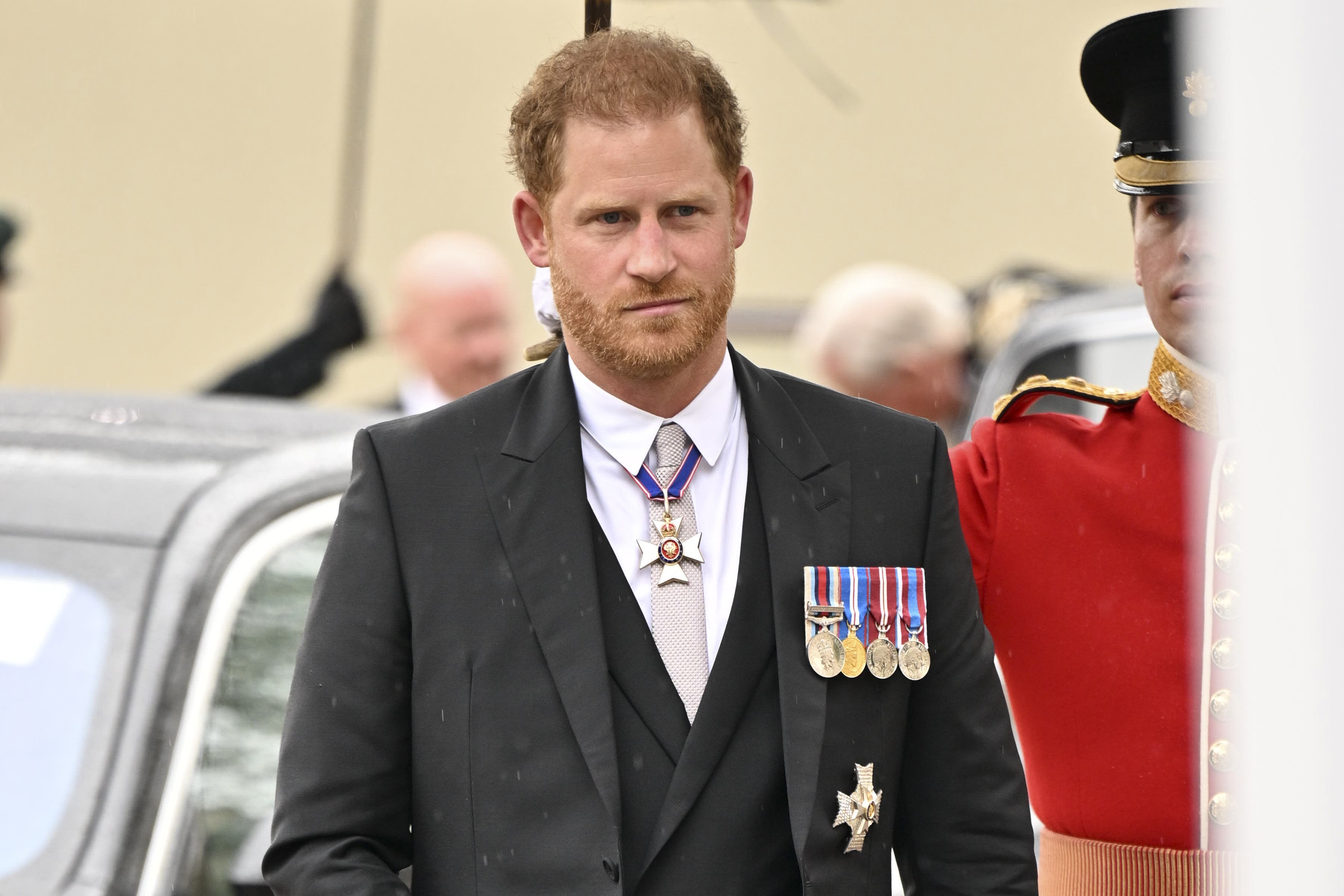Harry had no time ‘safe’ from unlawful information-gathering, court told
The Duke of Sussex claims Mirror Group Newspapers were linked to phone hacking and ‘blagging’.

The Duke of Sussex had “no time in his life when he was safe” from unlawful information-gathering, the High Court has heard as part of his case against the publisher of the Daily Mirror.
Harry is suing Mirror Group Newspapers (MGN) for damages, claiming journalists at its titles – which also include the Sunday Mirror and Sunday People – were linked to methods including phone hacking, so-called “blagging” or gaining information by deception, and use of private investigators for unlawful activities.
MGN is contesting the claims and has either denied or not admitted each of them. The publisher also argues that some of the claimants have brought their legal action too late.
The duke, who lives in the United States with his family, had been expected to attend court in London on Monday for the opening of his individual case.
However, the 38-year-old is now not expected to appear until Tuesday, when he is due to face cross-examination from MGN’s barrister, after flying to the UK on Sunday night after celebrating his daughter Lilibet’s second birthday.
Mr Justice Fancourt, the judge hearing the case, said he was “a little surprised” to hear that Harry would not be attending court on Monday.
Opening the duke’s individual case, barrister David Sherborne said Harry was “subjected to” unlawful information-gathering activity “right from when he was a young boy at school”.
This carried on through “the tragic death of his mother”, his time during military training at Sandhurst, and into adulthood.
The barrister said: “Nothing was sacrosanct or out of bounds and there was no protection from those unlawful information-gathering methods.”
Mr Sherborne said “no aspect of the young prince’s life was safe” from press intrusion and an aspect that was “too tempting and sold too many newspapers, and that is the personal relationships that he made”.
The barrister later claimed the details of his relationship with Chelsy Davy “were all revealed and picked apart by the three Mirror Group titles” which was “clearly driven by unlawful activity”.
The court was later told that a 2003 article detailed an alleged row between the duke and his brother William, now the Prince of Wales, over their mother’s former butler, Paul Burrell.
Mr Sherborne said: “Even at this very early formative stage… the seeds of discord between these two brothers are starting to be sown.”
“Brothers can sometimes disagree,” Mr Sherborne continued, adding: “But once it is made public in this way and their inside feelings revealed in the way that they are, trust begins to be eroded.”
He also said: “One can see how the mistrust can set in from an early age, exactly because of this type of activity.”
The barrister later alleged that the people around Harry were unlawfully targeted as part of a “web” to get information about the young duke’s life.
Mr Sherborne said such activity included the alleged targeting of “one of the closest confidantes” of the duke, Guy Pelly.
“These methods acted like a web around the prince in the hope it would catch the valuable information that they sought through these unlawful means, some of which made it in stories,” the barrister said.
He also claimed that Harry’s phone “would have been hacked on multiple occasions”, telling the court that his details appeared in the palm pilot of a journalist who was one of the “most prolific” phone-hackers.
Later Mr Sherborne said the late Diana, Princess of Wales, was a “huge target” for MGN’s newspapers, adding that certain unlawful activities in relation to her would have also affected Harry.
He said: “It is part of our case that the interception of her messages would necessarily have involved obtaining information about the young prince.”
Mr Sherborne then turned to letters exchanged between Diana and former television personality Michael Barrymore in 1997.
He read out two letters from the princess to the entertainer, which referred to private meetings between the pair, and in one of the letters Diana referred to being “devastated” to learn that the “Daily Mirror” had contacted her office about him and their meetings.
Harry’s claim is being heard alongside three other “representative” claims during a trial which began last month and is due to last six to seven weeks.
The duke alleges that about 140 articles published between 1996 and 2010 contained information gathered using unlawful methods, and 33 of these have been selected to be considered at the trial.
On the first day of the trial, lawyers for MGN said the publisher “unreservedly apologises” to the duke for one instance of unlawful information-gathering and that it accepts he is entitled to “appropriate compensation”.
Andrew Green KC said it is admitted that a private investigator was instructed, by an MGN journalist at The People, to unlawfully gather information about Harry’s activities at the Chinawhite nightclub one night in February 2004.
“Otherwise, the specified allegations are denied, or in a few cases not admitted,” he added.
The three other representative claimants are Coronation Street actor Michael Turner, known professionally as Michael Le Vell, who is best known for playing Kevin Webster in the long-running soap, former Coronation Street actress Nikki Sanderson, and comedian Paul Whitehouse’s ex-wife Fiona Wightman.
Mr Green said voicemail interception is denied in all four cases and that there is “no evidence or no sufficient evidence”.
Subscribe to Independent Premium to bookmark this article
Want to bookmark your favourite articles and stories to read or reference later? Start your Independent Premium subscription today.
